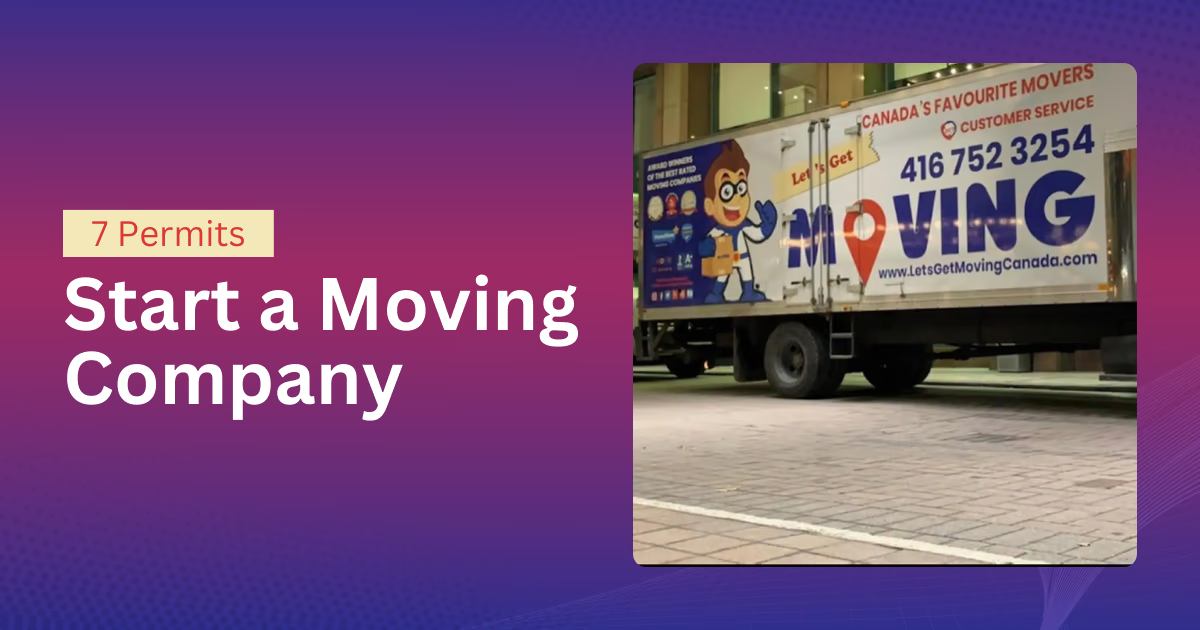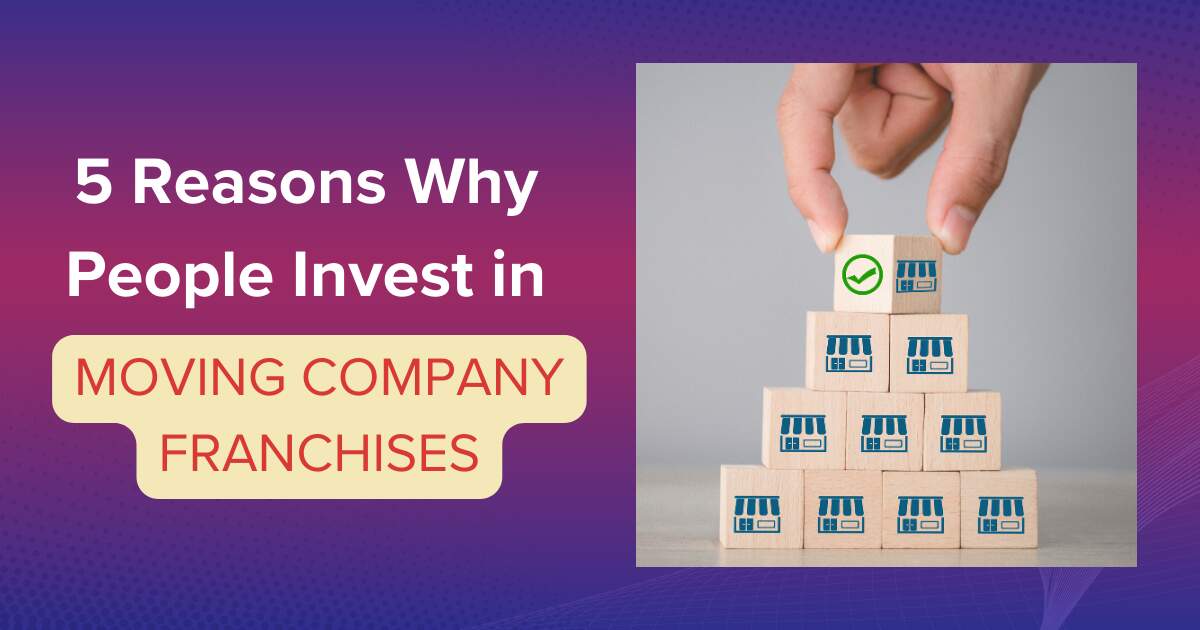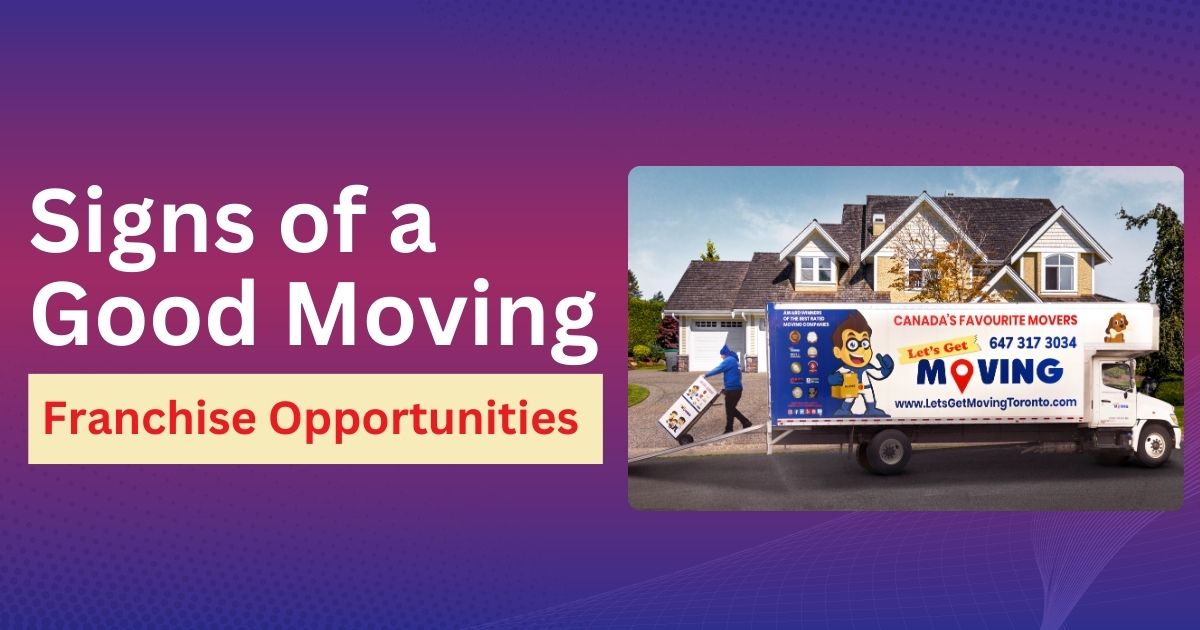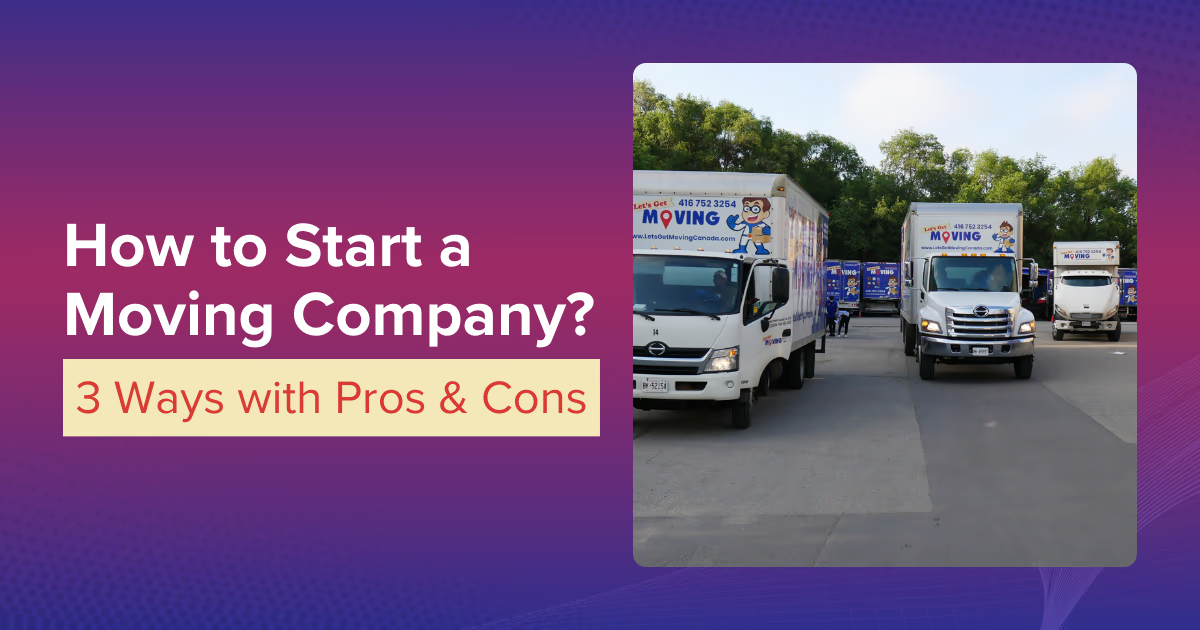Starting a moving company can be a profit-making decision, but you may be wondering (and rightly so), “What permits do I need?”
As a 13-year veteran in the moving business across Canada and have started operations in USA, we’re covering this question. Right now, we are actively onboarding moving company franchisees in the United States, and we know all about the permits needed to start up in places like Marietta, Georgia, and Lauderhill, Florida.
Maybe it’s your first moving company, but there’s no tolerance for entrepreneurs caught without permits and attempting to claim ignorance. Compliance with local and federal laws is necessary for any new business venture.
We know you want to be compliant when opening your moving company, so we consulted with our USA franchise team to get a list of the permits you’ll need for a moving company.
- If you are moving between states then you need a U.S.DOT Number but if you are operating locally then there is no need. For example, if your moving company is at the border of the state then you probably do interstate moves, so you need a DOT number but if you are a local Miami mover then there is no need for that.
- Every state has different permit requirements. So if you are in Florida, you have to check with FDACS and if your moving company is in Patterson, NJ then you need a permit from the New Jersey Department of Consumer Affairs.
- Also, every city and county has different Moving Permit requirements so that you can park your truck. This permit comes with “No Parking Signs”
- Furthermore, you must have your office building and vehicles inspected by a regulatory authority and obtain their approval.
In this blog, we will explore the different types of approvals and permits you need to ensure your company’s compliance with local, state, and federal regulations.
1. Business License
Obtaining a general business license to legitimize your company is a necessary first step to business ownership. The business license process differs from state to state, but your moving company will likely qualify as a limited liability company (LLC), a corporation, or a franchise.
With a moving company franchise like Let’s Get Moving, the company takes care of the business license, so the franchisees don’t have to worry about this task.
A basic business license is mandatory for any operation in the United States. Without one, you could be excluded from booking jobs, hurting your credibility as a business owner.
2. Motor Carrier (MC) Number
Register for an MC number from the Federal Motor Carrier Safety Administration (FMCSA). Your Motor Carrier number is used to identify commercial vehicles for record-keeping and other regulatory purposes.
The number also allows you to transport certain types of cargo between states. Therefore, this number is mandatory for commercial vehicles engaged in interstate transportation.
Because this can be new territory for new moving company entrepreneurs, Let’s Get Moving helps its franchisees obtain their MC number, secure moving trucks, and obtain competitive insurance prices.
3. Department of Transportation (DOT) Number
You may need a DOT number, even if you are a local moving company and not traveling between states. Get your U.S. Department of Transportation (DOT) number from the department website, and then check your state’s DOT website to see if you need additional licensing.
Let’s Get Moving has moving company franchises all over the United States. Many states have regional requirements for moving companies, and it is always best to check with the DOT. For our franchisees, we offer expertise in navigating this license when required. This is the reason why people invest in moving company franchises.
4. Insurance Coverage
Insurance for movers allows you to operate the business and its vehicles, hire employees, and move other people’s property without worrying about being sued out of business. General moving company insurance covers three main things.
- Third-party bodily injury: If someone sustains an injury from moving, this protects you from liability.
- Third-party property damage: Property damage is common during a move, and a certificate of insurance will cover some of the costs of the damaged items.
- Legal defense costs: This protects you from legal liability and the cost of paying legal defense fees.
In addition to this general insurance, moving companies must (or should) have several other insurance policies.
- Commercial auto insurance: Legally required to operate any vehicle used during moves.
- Workers’ compensation insurance: Covers on-the-job injuries for all workers, and all moving companies require it to hire employees.
- Commercial property insurance: This optional policy protects your business’ belongings from damage from human error or weather during the move.
All but commercial property insurance is mandatory. Not having these insurance policies could mean that one lawsuit could end your entrepreneurial dreams.
5. Employer Identification Number (EIN)
You cannot hire employees without obtaining an EIN online from the Internal Revenue Service (IRS). You will need to provide basic information about the company and its structure, and you should get the EIN immediately.
Without this number, you can’t collect customer taxes, and the IRS could fine you or face more serious legal consequences. The IRS uses this number to identify businesses that need to submit various tax returns.
6. Moving Permits
Moving permits are required in some large U.S. cities to park a vehicle on the street for a specific time, such as a moving truck or other commercial vehicle. Most moving permits come with temporary “no parking” signs so you can mark the space to park your moving truck.
Here are some U.S. cities that require a moving permit.
- California: San Francisco and Manhattan Beach
- Illinois: Chicago
- Massachusetts: Boston, Cambridge, and Brookline
- New Jersey: Hoboken
- Oregon: Portland
- Pennsylvania: Philadelphia
Washington, D.C. Metro Area: Washington, D.C., Alexandria, and Arlington - Washington: Seattle
Our U.S. moving experts suggest applying for a moving permit at least five days before the move and expect to pay $20-$80 for a one-day moving license, depending on the issuing city.
Moving permits are mandatory in many metro areas. Not having one looks unprofessional and could result in an expensive parking ticket every time you’re caught by local parking enforcement.
7. Operational Permits
You’re probably familiar with how health and safety inspections affect other industries. Restaurants rely on passing grades to reassure their customers, and construction sites must pass them to remain operational.
All hazardous operations in the United States require operational permits and recurring inspections to grant them.
Your state will determine the specifics of the business inspections you’ll be subjected to to obtain operational permits. The District of Columbia has a list of hazardous work conditions that would require a permit. Texas has a similar list, and like D.C., its inspections are overseen by the Fire Marshal.
Remember, permit requirements can vary based on your location and the services you offer. Thorough research and consultations with legal or U.S. moving company experts will help ensure you’re following the letter of the law.
Starting a Moving Company Franchise = Less Work Obtaining Permits
The easy road toward obtaining permits is to buy a franchise but there are certain things that you can check before starting a local moving franchise. A franchise system comes with a system and support that is timely tested to drive success in the business.
Have a look.
| Benefit | What it means | How it helps you |
|---|---|---|
| Established Processes | Franchise systems already know how to obtain permits. If opening in a new location, they know how to research the necessary permits. | Less work for you. |
| Expert Guidance | Franchisors typically offer in-house support and guidance, including help with permit applications. | Fewer legal and business operations consultant costs for you. |
| Pre-existing Relationships | Franchises have pre-existing relationships with regulatory agencies and are familiar with the permit processes. | Streamlined channels of approval mean that you start running the business sooner. |
| Comprehensive Training | Franchise training programs usually cover regulatory compliance, including permit requirements. | Expert guidance on obtaining permits could help you open new locations faster. |
| Shared Resources | Franchises can pool resources for permit-related expenses, such as legal fees or application costs. | It is cheaper than financing permit-related expenses as a sole owner. |
| Updates and Compliance | Franchisors stay updated on regulatory changes and ensure franchisees remain compliant. | Less risk of permit-related issues or penalties for you. |
A good moving company franchisor will make permit-getting smoother and more manageable.
Conclusion: Permits are a Necessary Part of Moving Company Ownership
Starting a moving company is exciting but requires obtaining a complex web of permits and regulations. Unless, of course, you invest in a moving company franchise.
Whether setting up shop in Spring Hill, Florida, or Marietta, Georgia, the essential permits outlined in this guide—from business licenses to DOT numbers and insurance coverage—are non-negotiables for legal compliance and operational success.
You can research and obtain these permits yourself, hire legal counsel, and prepare for a long wait as your permits are approved. Or you could streamline things greatly by investing in a franchise that already knows how to secure permits faster.
We can only attest that the latter option will better equip you for a smooth launch and ongoing operation of your moving venture.



